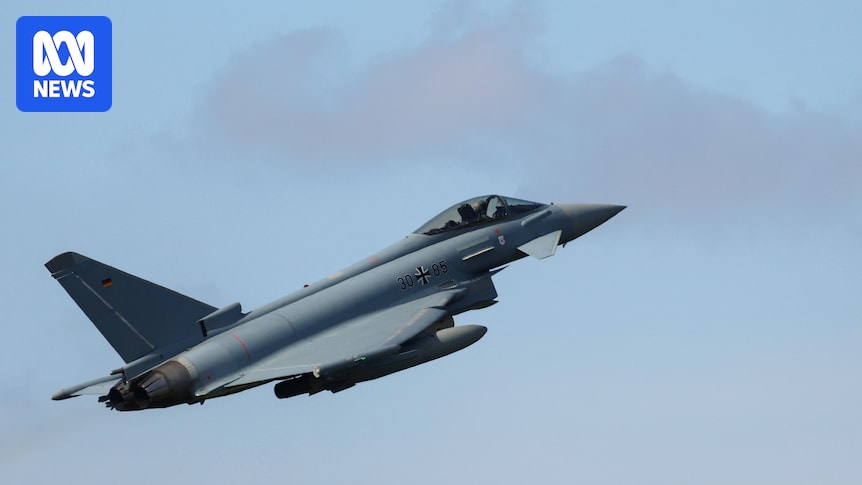Germany has sent planes to track a Russian military aircraft after it was intercepted flying without a plan or radio contact in a neutral airspace over the Baltic Sea.
The German Air Force said its “quick reaction alert force”, ordered by NATO on Sunday, came amid rising tensions in the region following Moscow’s incursion into Estonia’s airspace in recent days.
Russian jets were observed flying in Estonian airspace for more than 10 minutes on Friday, an incursion condemned by President Donald Trump.
President Donald Trump on Sunday said he would defend the EU members and Baltic states if Russia intensified hostilities.
When asked by reporters, Mr Trump said: “Yeah, I would. I would.”
Donald Trump says he will back the Baltic states in case of an escalation from Russia.
(Reuters: Ken Cedeno/File photo)
The incident has prompted an emergency meeting of the UN Security Council on Monday.
The two German Eurofighters handed the Russian IL-20m military aircraft escort over to NATO partners in Sweden.
Poland also accused the Kremlin of deploying jets to fly over polish-owned gas drilling facilities in the Baltic.
Earlier this month, Polish military shot down suspected Russian drones after repeated violations of its airspace during an attack on Ukraine.
NATO reacts to Russia’s incursion
On Sunday, British fighter jets flew over Poland as part of operations to protect NATO’s eastern flank.
UK Defence Minister John Healey said the Eastern Sentry mission had sent “a clear signal” that NATO airspace would be defended.
“NATO airspace will be defended,” Mr Healey said in a statement.
UK fighter jets begin NATO air defence mission over Poland
The European Union said the three Russian MiG-31 fighters that violated Estonian airspace over the Gulf of Finland triggered complaints of a dangerous new provocation.
Moscow denied the incident.
Italian F-35 fighters attached to NATO’s mission, along with Swedish and Finnish aircraft, were scrambled to intercept the Russian jets and warn them off.
Russian warplanes breach NATO airspace over Estonia
After Mr Trump was briefed on the situation in Estonia, he said, “We don’t like it.”
His statement came about two weeks after some 17 Russian drones violated Polish airspace, an incident Mr Trump then sought to downplay.
“It could have been a mistake,” Mr Trump told journalists on September 11.
ABC/Wires
